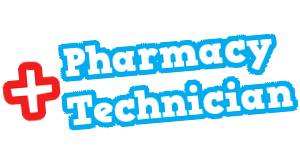Pharmacy Technician Certification Can Be Completed In 1 Year
Like many professions in the medical field, pharmacy technicians must receive certification in order to practice. A technician can be responsible for many duties throughout the day, assisting licensed pharmacists in providing medication and products to patients.
In order to do so, pharmacy technicians often count prescription tablets, fill bottles and print labels, as well as performing administrative duties required by the pharmacy, such as stocking shelves, providing customer service, operating a cash register and answering phones.
While a technician must be knowledgeable in the health care field, specific questions about health matters or prescriptions must be handled by a pharmacist.
Pharmacy technician certification can be completed in a short period of time compared to other professions in the medical field, but like all careers, more training translate to a higher understanding of how to properly perform job duties and higher salaries.
Pharmacy Technician Education
A pharmacy technician degree can be obtained from online programs or in-class programs. Programs that meet in person will generally require an internship at a hospital pharmacy or community pharmacy at some point during the course of the education, however, online programs may lack this important piece of experience.
While internships may not be required for certification, they provide a valuable opportunity to apply learned knowledge to live situations and gain feedback from supervisors. Internships also account for experience, which can land an applicant a better salary or better job offer over an applicant that does not have the same previous work experience.
A high school diploma or GED is required to become a pharmacy technician, however there is little post-secondary schooling required as much of a technician’s knowledge comes from on-the-job training. The majority of programs are completed in one year with certification exams taken upon graduation.
Pharmacy Technician Certification Requirements
Each state’s Board of Pharmacy has separate requirements regarding certification for pharmacy technicians. The American Society of Health System Pharmacists is the accreditor for pharmacy residency programs in the United States. Currently, there are two organizations that offer certification for pharmacy technicians.
The Pharmacy Technician Certification Board (PTCB) administers the Pharmacy Technician Certification Exam (PTCE), which is accredited by the NCCA (National Commission for Certifying Agencies). The National Healthcare Association offers the Pharmacy Technician Certification Program which is also accredited by the NCCA.
The PTCB has several requirements for candidates to be eligible for the PTCE:
-high school diploma or GED,
-no drug or pharmacy convictions or misdemeanours; no felony convictions,
-and candidates cannot have licensing restrictions, such as denial, revocation, and suspension of licenses or registration.
Programs for Certified Pharmacy Technicians (CphT) are designed to equip technicians with the knowledge and ability to work with pharmacists in order to provide effective and safe care to patients. The PTCE examines a candidate’s competence to perform the duties required of a technician.
Although pharmacy technician certification is not always required by an employer, the process helps to ensure a high level of worker competency, provides additional safety to the patient, and provides a better salary and employment opportunity to the technician.
